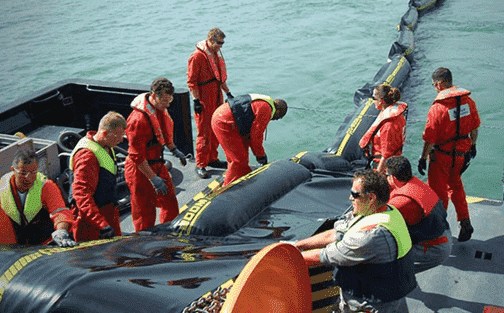COURSE OVERVIEW
HE0858 : Industrial Hygiene Certification Program OHTA506: Ergonomics Essentials (Accredited by OHTA)

OVERVIEW
| COURSE TITLE | : | HE0858 : Industrial Hygiene Certification Program OHTA506: Ergonomics Essentials (Accredited by OHTA) |
| COURSE DATE | : | Sep 16 - Sep 20 2024 |
| DURATION | : | 5 Days |
| INSTRUCTOR | : | Mr. Peter Jacobs |
| VENUE | : | Abu Dhabi, UAE |
| COURSE FEE | : | $ 7500 |
| Request For Course | ||
OTHER SCHEDULED DATES
| Date | : | Feb 15 - Feb 19 2025 (5 Days) | Location | : | Kuwait City, Kuwait | Classroom Fee (US$) | : | $ 7500 | Course Info |
| Date | : | May 11 - May 15 2025 (5 Days) | Location | : | Doha, Qatar | Classroom Fee (US$) | : | $ 8000 | Course Info |
| Date | : | Aug 03 - Aug 07 2025 (5 Days) | Location | : | Dubai, UAE | Classroom Fee (US$) | : | $ 7500 | Course Info |
| Date | : | Oct 12 - Oct 16 2025 (5 Days) | Location | : | Al Khobar, KSA | Classroom Fee (US$) | : | $ 7500 | Course Info |
| Date | : | Dec 15 - Dec 19 2025 (5 Days) | Location | : | Abu Dhabi, UAE | Classroom Fee (US$) | : | $ 7500 | Course Info |
Course Description
This course aims to provide a broad-based introduction to ergonomics (musculo-skeletal disorders, manual handling, etc.) and their application in design of work, equipment and the workplace including social and legal concerns.
On completing this course successfully, participants will be able to:-
•
Optimize the efficiency and effectiveness of
activities in the workplace using
ergonomic solutions
•
Understand ergonomic risk assessments and
appropriate control measures
•
Understand the causes of upper limb disorders and
how to reduce them
•
Understand the impacts of workplace layout and
eq
uipment design
•
Appreciate environmental aspects of good ergonomic
design
The course normally run as a taught course over 5 days (including lectures, tutorials, practical/demonstration sessions, guided reading, overnight questions and examination).
This course is designed to provide participants with a detailed and up-to-date overview of OHTA506: Ergonomics Essentials. It covers the general principles of ergonomics; the history and scope of ergonomics and systems of works; the aims, objectives and benefits of ergonomics and occupational ergonomics; the human characteristics, capabilities and limitations, human error, teamwork, ageing and the role of the ergonomist; the biological ergonomics comprising of body systems, the musculoskeletal system, posture and movement, bio mechanics, anthropometry and work physiology; the perception and cognition, memory, decision making, perception, signal detection and vigilance; the motivation and behavior, work ‘stress’ preventive and protective measures, work orientation and rest and work breaks; and developing an ergonomics strategy at work through proper commitment and decision-making, macro-ergonomics and participatory ergonomic.
During this interactive course, participants will learn the ergonomics methods and techniques, work design, ergonomics risk management and measurements and information gathering; the nature and causes of manual handling disorders (musculoskeletal disorders) and work-related upper limb disorders (WRULD), WRULD/repetitive strain injuries/cumulative trauma disorders; the principles of workplace and work systems design, workstation and equipment design; the information, displays and controls; the physical factors of the work environment, vision and lighting, noise, thermal environment, vibration, smell, taste and tactile senses and clothing and protective equipment; the standards and social aspects of ergonomics; and the training, experience and skill development, health information and measuring the impact of ergonomics.
On completing this course successfully, participants will be able to:-
•
Optimize the efficiency and effectiveness of
activities in the workplace using
ergonomic solutions
•
Understand ergonomic risk assessments and
appropriate control measures
•
Understand the causes of upper limb disorders and
how to reduce them
•
Understand the impacts of workplace layout and
eq
uipment design
•
Appreciate environmental aspects of good ergonomic
design
The course normally run as a taught course over 5 days (including lectures, tutorials, practical/demonstration sessions, guided reading, overnight questions and examination).
This course is designed to provide participants with a detailed and up-to-date overview of OHTA506: Ergonomics Essentials. It covers the general principles of ergonomics; the history and scope of ergonomics and systems of works; the aims, objectives and benefits of ergonomics and occupational ergonomics; the human characteristics, capabilities and limitations, human error, teamwork, ageing and the role of the ergonomist; the biological ergonomics comprising of body systems, the musculoskeletal system, posture and movement, bio mechanics, anthropometry and work physiology; the perception and cognition, memory, decision making, perception, signal detection and vigilance; the motivation and behavior, work ‘stress’ preventive and protective measures, work orientation and rest and work breaks; and developing an ergonomics strategy at work through proper commitment and decision-making, macro-ergonomics and participatory ergonomic.
During this interactive course, participants will learn the ergonomics methods and techniques, work design, ergonomics risk management and measurements and information gathering; the nature and causes of manual handling disorders (musculoskeletal disorders) and work-related upper limb disorders (WRULD), WRULD/repetitive strain injuries/cumulative trauma disorders; the principles of workplace and work systems design, workstation and equipment design; the information, displays and controls; the physical factors of the work environment, vision and lighting, noise, thermal environment, vibration, smell, taste and tactile senses and clothing and protective equipment; the standards and social aspects of ergonomics; and the training, experience and skill development, health information and measuring the impact of ergonomics.
TRAINING METHODOLOGY
This interactive training course includes the following training methodologies:
LecturesWorkshops & Work Presentations
Case Studies & Practical Exercises
Videos, Software & Simulators
In an unlikely event, the course instructor may modify the above training methodology for technical reasons.
VIRTUAL TRAINING (IF APPLICABLE)
If this course is delivered online as a Virtual Training, the following limitations will be applicable:
| Certificates | : | Only soft copy certificates will be issued |
| Training Materials | : | Only soft copy materials will be issued |
| Training Methodology | : | 80% theory, 20% practical |
| Training Program | : | 4 hours per day, from 09:30 to 13:30 |
RELATED COURSES

HE0749 : API-780: Security Risk Assessment Methodology for the Petroleum & Petrochemical Industries
- Date: Jan 05 - Jan 09 / 3 Days
- Location: Dubai, UAE
- Course Details Register

HE0400 : Fundamentals of Process Safety & Loss Prevention
- Date: Jan 05 - Jan 09 / 3 Days
- Location: Doha, Qatar
- Course Details Register

HE0851 : Certified Incident Investigator: Incident Investigation & Reporting (NFPA, OSHA, API, ISO & ANSI Standards)
- Date: Jan 05 - Jan 09 / 3 Days
- Location: Dubai, UAE
- Course Details Register

HE0790 : Oil Spill Management & Response (IMO Certification)
- Date: Jan 05 - Jan 09 / 3 Days
- Location: Al Khobar, KSA
- Course Details Register
